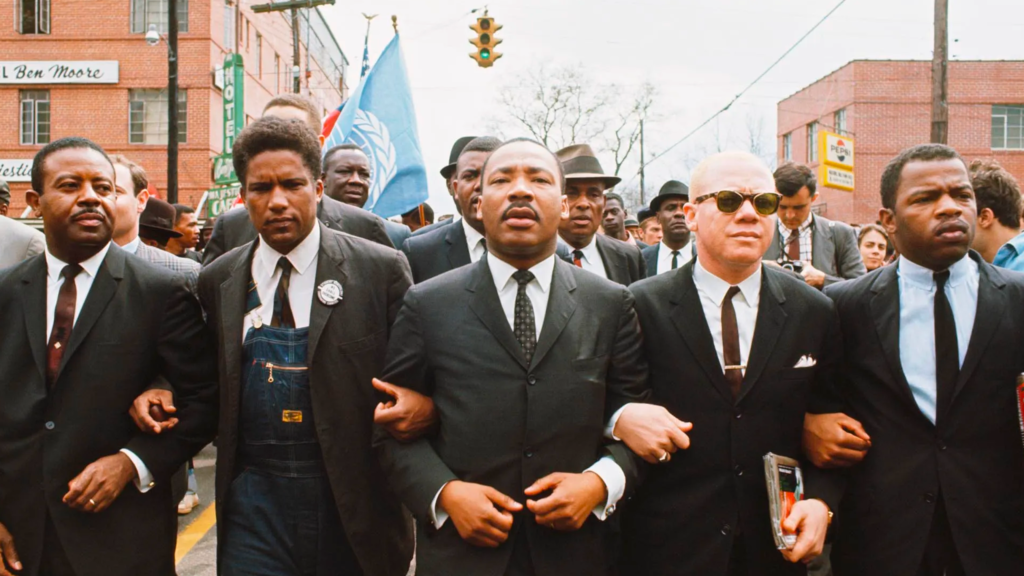THIS POST WAS ORIGINALLY SENT TO MY MAILING LIST. WANT TO RECEIVE EMAILS LIKE THIS IN THE FUTURE? SIGN UP HERE: https://colinshuran.com/newsletter/
“True peace is not the absence of some negative force—tension, confusion, or war; it is the presence of some positive force—justice, good will, and brotherhood.”
~Dr. Martin Luther King, Jr.
(from his sermon, “Facing the Challenge of a New Age”)
Since it’s MLK Day, I thought it would be appropriate to write about one of my greatest personal heroes. For years, I have been fascinated with Dr. King. I’ve researched and studied his texts, discovering wisdom that pertains to my life’s message. I’ve read books about him, listened to his speeches, and even visited the Lorraine Motel where he was assassinated. I’ve quoted him often in my work, including my TEDx Talk on listening.
In truth, I’ve always wondered exactly why Dr. King is one of my heroes. He didn’t fight for me—the white man, the antithesis to his cause. Why, then, would I be so enamored by the man?
I think it has to do with identity.
As some will know after reading my personal account of substitute teaching, I had lost purpose for some time. Without diving in too deep, after dropping out of film school, nothing made sense to me. I was lost, confused—I didn’t know who I was. I had this recurring dream that I’d live in Hollywood and direct films, accept major awards, and become a household name. So one could imagine my shock when I decided to abandon film school altogether, including filmmaking itself.
I became bitter. I grew to hate the one thing I loved most. I loathed even looking at my film equipment. My walls were decorated with my own film regalia, including posters and awards. Coupled with this, the famed Hollywood director I dreamt of becoming turned out to quite literally be a dream.
My identity was shaken. The person I was after dropping out of film school was a relic of my memory. I was no longer him. Thus, an identity crisis was born of me.
Amidst this personal crisis, I turned to literature—most of it being ancient Eastern texts and modern religious testimonies. I was searching for answers to this setback. With the advice of turning back to my childhood, I rediscovered some of my favorite heroes—those whom I was charmed by the most.
One of them happened to be Dr. Martin Luther King, Jr.
Soon, I went to the library in search of his work, and I found speeches and biographies on the man himself. I wrote down everything that stuck out to me—pages and pages of pertinent wisdom that blew my mind and aligned with my life’s mission.
The integrity and determination of a man to solve a problem as intense as the reformation of basic human rights—that simply astonished me. Even more so, I learned of the man “behind the public veil,” as MLK scholar Lewis V. Baldwin put it. Here was a man who—when he was my age, even before he was acclaimed—struggled intensely with who he was and what he was doing on this earth. According to his father, Martin Jr. was “a curious youngster who really did wonder constantly about this peculiar world he saw all around him.”
This reminds me of another hero of mine, Abraham Lincoln. He, too, was once a young man who “had a strong conviction that he was born for better things than then seemed likely or even possible . . . he was destined for something nobler than he was for the time engaged in” (from Lincoln’s Melancholy).
Did MLK or Abe Lincoln prepare or expect to do the great things they did? Likely not, as Abe Lincoln struggled with depression, and MLK had bouts of self-doubt. Lincoln planned on being a lawyer, and MLK a preacher—yet, they were in the right place at the right time. It was God’s plan for these two men to become who they are now remembered as.
They did their “thing,” and nobler opportunities came to them. They continued doing what they were supposed to do, and, in the process, good things came to them.
My analyses of these two personal heroes reaffirmed the fact that I don’t need to have it planned out. I just need to keep doing what I’m doing and trust that good things will come my way.
The same applies to you.
Martin Luther King, Jr., too, once had a dream—a dream of hope, peace, and brotherhood. Though he was eventually knocked off his feet by a traveling bullet discharged by a wicked assassin. We can’t just plan out our lives, for we might be beaten down and abandoned. We have to do what we can, with what we have, and in the present moment.
My dream of being a successful movie star, in hindsight, was so short-sighted and self-centered. It was as if I needed to be knocked down to shed light on what really mattered to me. Now, I’ve rediscovered who I am, and my dream is no longer about materiality. It’s about love for the world, for our neighbors and for ourselves.
“Darkness cannot drive out darkness,” said MLK. “Only light can do that.” In those times of pity, of self-loathing, of wandering aimlessly—MLK was my light.
Today, I’m observing and remembering the exceptional hero who was Dr. Martin Luther King, Jr.
And forever will be.
A quick message: If you’re interested in digging deeper into the man that was MLK, please consider reading “Strength to Love,” which is a collection of Dr. King’s sermons and speeches. I have taken a copious amount of notes from his sermons that are still relevant today. In my opinion, no biography will ever touch the mastery and revelations of Dr. King’s sermons.
